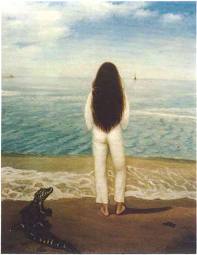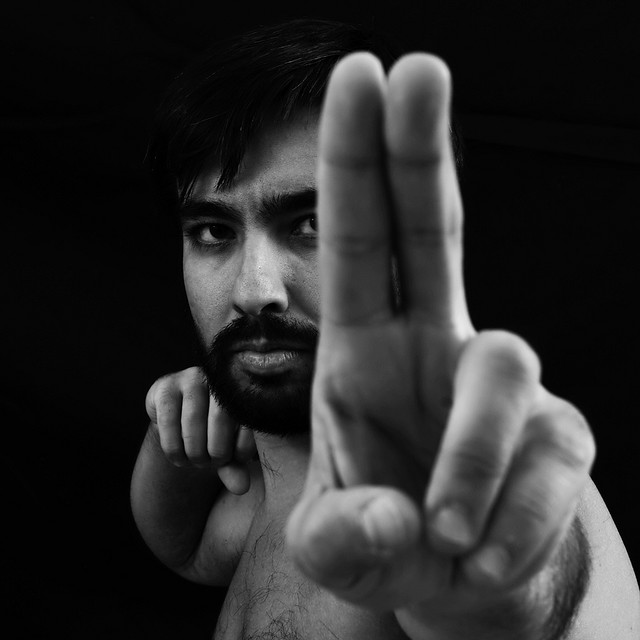Excerpts from as well as Articles & Dialogues on Published & Forthcoming Books
Daily Wisdom: Desire

The Erotic and the Holy
Marc Gafni
For more information on private study or to book a public teaching, contact Dr. Marc Gafni at support@ievolve.org

 Whenever we keep eros confined to one narrow frame of being, while de-eroticzing the rest of the picture – the Shechina remains in exile. Sex is only one of the places where we exile the erotic. There is a wonderful Balinese saying which goes something like, “We do not have art – we do everything as beautifully as we can”. When we build ugly cities where beauty is abused and people are depersonalized and then build a beautiful art museum, the Shechina is in exile. We exile the eros of beauty to the constricted precincts of formal art.
Whenever we keep eros confined to one narrow frame of being, while de-eroticzing the rest of the picture – the Shechina remains in exile. Sex is only one of the places where we exile the erotic. There is a wonderful Balinese saying which goes something like, “We do not have art – we do everything as beautifully as we can”. When we build ugly cities where beauty is abused and people are depersonalized and then build a beautiful art museum, the Shechina is in exile. We exile the eros of beauty to the constricted precincts of formal art. In biblical mysticism love and oneness are identical. In Hebrew, there is a mystical technique called “gematria” in which each letter, and thus each word, has a numerical value. The Hebrew word for love, ahava, has a numerical value of thirteen. Echad, meaning one, also has a numerical value of thirteen. To the Kabbalistic mind, this coincidence of number is more than coincidence. It is as if it is a mystical law has been encoded into the letters of these words. Love is Oneness and Oneness is Love. One is but another word for the erotic interconnectivity of all being.
In biblical mysticism love and oneness are identical. In Hebrew, there is a mystical technique called “gematria” in which each letter, and thus each word, has a numerical value. The Hebrew word for love, ahava, has a numerical value of thirteen. Echad, meaning one, also has a numerical value of thirteen. To the Kabbalistic mind, this coincidence of number is more than coincidence. It is as if it is a mystical law has been encoded into the letters of these words. Love is Oneness and Oneness is Love. One is but another word for the erotic interconnectivity of all being.

 Love is all about insight–in-sight. It is the ability to see in, to the inside of the inside, to the Holy of Holies that is your lover. Eros is being on the inside. Thus, love is an erotic perception of the highest order. Naturally you have to move way beyond sexual seeing. Sex only models eros. To be an erotic lover you have to understand that “what is essential is invisible to the eye.”
Love is all about insight–in-sight. It is the ability to see in, to the inside of the inside, to the Holy of Holies that is your lover. Eros is being on the inside. Thus, love is an erotic perception of the highest order. Naturally you have to move way beyond sexual seeing. Sex only models eros. To be an erotic lover you have to understand that “what is essential is invisible to the eye.” The third understanding of the power of teshuva: the spiritual time machine. Teshuva literally means “to turn or return.” To return to where?
The third understanding of the power of teshuva: the spiritual time machine. Teshuva literally means “to turn or return.” To return to where? First, there is the great erotic principle of yearning. Sin in Hebrew mysticism is a force of separation and division. Sin separates the human being from her divine source. The further you pull away, the more powerfully the force to return builds. As Isaac Newton said, every action has an equal and opposite reaction. The greater the separation, the deeper and more powerful is the yearning to return. (Imagine a rubber band that is pulled taut and then released.) The energy of the fall is transformed into yearning, and the person winds up being a much better person than had they never fallen. In this way through the process of teshuva–implying recognition, regret, and future commitment–intentional sins are transformed into virtues.
First, there is the great erotic principle of yearning. Sin in Hebrew mysticism is a force of separation and division. Sin separates the human being from her divine source. The further you pull away, the more powerfully the force to return builds. As Isaac Newton said, every action has an equal and opposite reaction. The greater the separation, the deeper and more powerful is the yearning to return. (Imagine a rubber band that is pulled taut and then released.) The energy of the fall is transformed into yearning, and the person winds up being a much better person than had they never fallen. In this way through the process of teshuva–implying recognition, regret, and future commitment–intentional sins are transformed into virtues.

